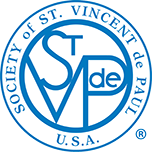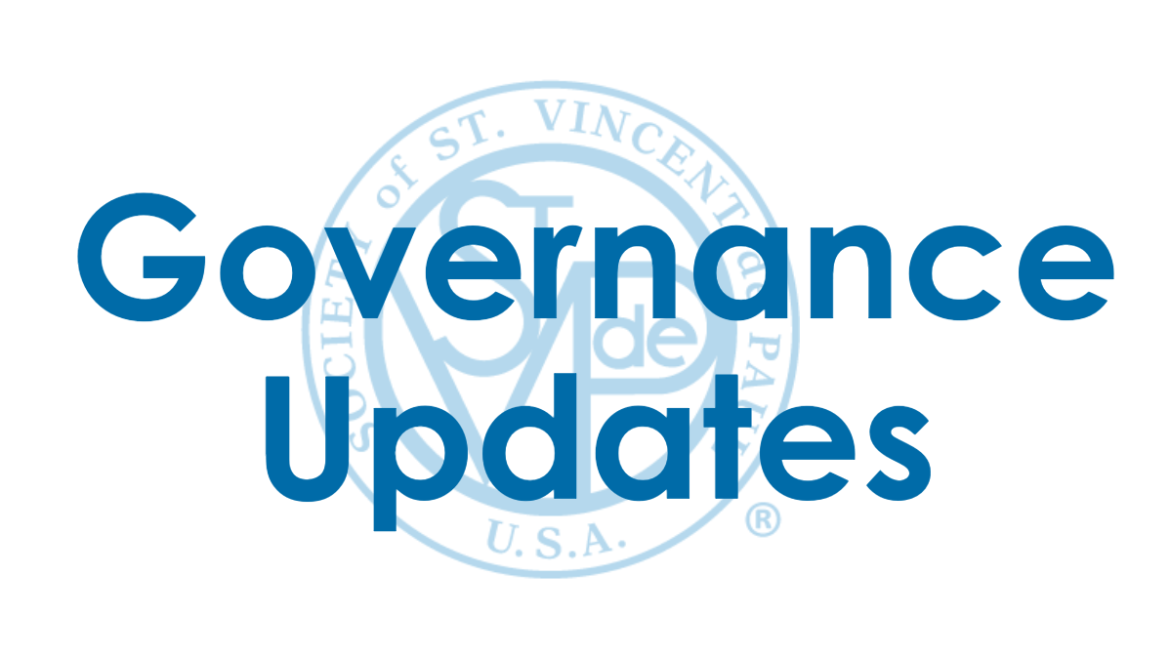Q: My Conference is now on Facebook and has a Twitter account, (this) in addition to our website. Is it okay for us to use the Society’s logo for our avatar in these mediums and for all official business?
A: All Conferences and Councils in good standing with the National Council can use the Society’s trademarks, which include logos, for official SVdP work. These cannot be assigned to third parties.
Q: A Conference president resigned after serving only 2 months. Another president was elected and served the remaining 10 months, and subsequently served another 3 yr. term. Is that same president permitted to preside for another term?
A: Yes, the president in office is eligible to serve a second term. However, his/her first term should have been 10 months the first year and two subsequent years make up the first term. Please refer to your Conference bylaws, as stated under heading, Extraordinary Circumstances, “The newly elected President’s term of office begins on the date of election to that position and installation occurs at the next Corporation Board meeting or on October 1st of that year, whichever is first. If the term begins prior to October 1st, irrespective of the months involved, the period of time prior to October 1st is counted as the first year with the remaining two years of a three-year term of office beginning October 1st of that year.”
P: Mi Conferencia ya está en Facebook y tiene una cuenta de Twitter, además de nuestro sitio web. ¿Está bien si utilizamos el logotipo de la Sociedad como avatar en estos medios y para todos los asuntos oficiales?
R: Todas las Conferencias y Consejos que estén al dia con las reglas del Consejo Nacional pueden utilizar las marcas registradas de la Sociedad, que incluyen logotipos, para el trabajo oficial de la SVDP. Estas marcas no pueden ser cedidas a terceros.
P: El Presidente de una Conferencia renunció después de cumplir sólo dos meses de su mandato. Se eligió a otro Presidente, cumplió los diez meses restantes y, posteriormente, cumplió otro mandato de tres años. ¿Se le permite a ese mismo Presidente presidir durante otro mandato?
R: Sí, el Presidente en el cargo es elegible para cumplir un segundo mandato. Sin embargo, su primer mandato debería haber sido de 10 meses el primer año y dos años siguientes constituyen el primer mandato. Por favor, consulte los estatutos de su conferencia, como se indica en el encabezado, Circunstancias Extraordinarias, “El mandato del Presidente recién elegido comienza en la fecha de la elección a ese cargo y la instalación se produce en la próxima reunión de la Junta de la Corporación o el primero de octubre de ese año, lo que ocurra primero. Si el período comienza antes del primero de octubre, independientemente de los meses involucrados, el período de tiempo anterior al primero de octubre se cuenta como el primer año con los dos años restantes de un mandato de tres años que comienza el primero de octubre de ese año”.



